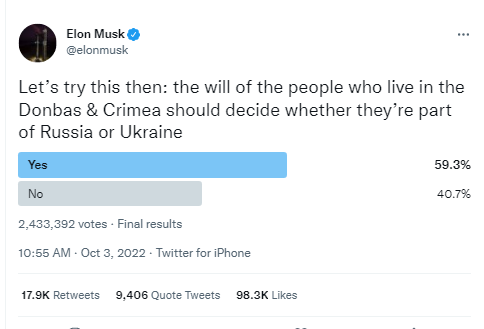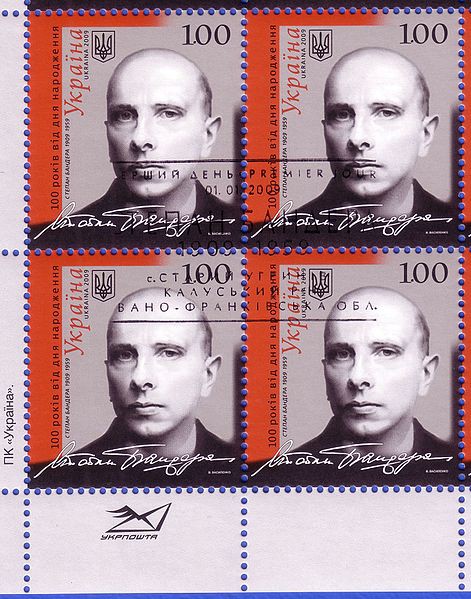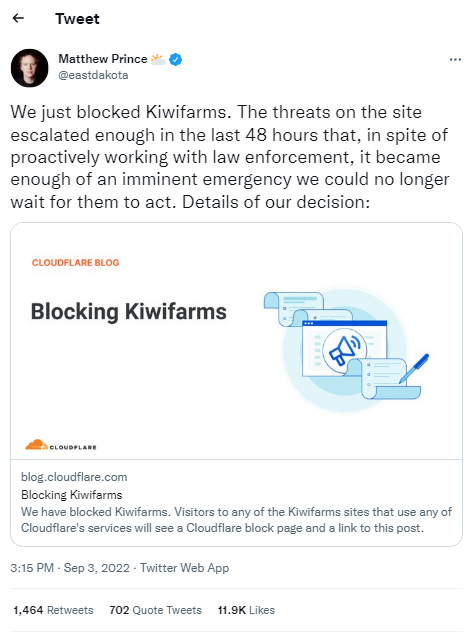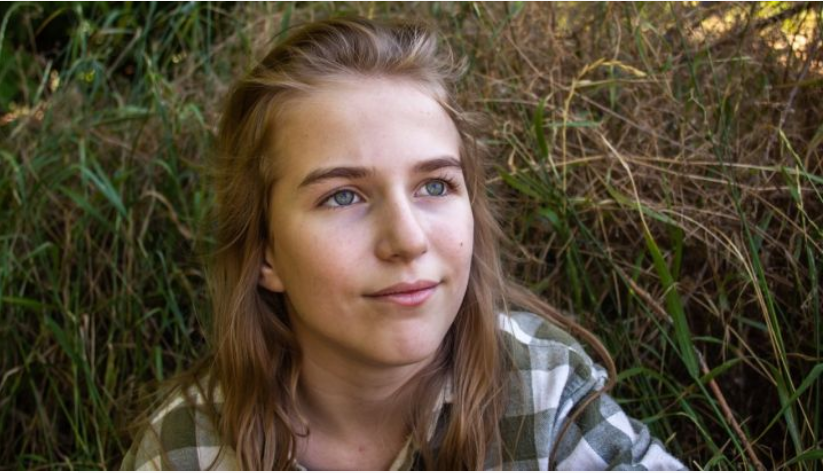A Life Worth One Bullet

 Deborah L. Armstrong
Deborah L. Armstrong
If you are a parent, there may be times when you think of your kids as little terrorists. At least jokingly. Lovingly.
But 13-year-old Faina Savenkova is considered a REAL terrorist in Ukraine, under the law which equates “info terrorism” with all other acts of terrorism.
What did Faina do? Did she blow up a building? Did she hijack a plane? Did she hold people hostage at gunpoint?
No. She voiced her opinions.
And for that, the child-writer from Donbass was placed on the notorious Ukrainian kill list known as Mirotvorets, “Peacemaker,” where her personal data — her home address and phone number — have been made public.
After all, to the nationalists who make Ukraine’s laws these days, Faina’s life is only worth one bullet.
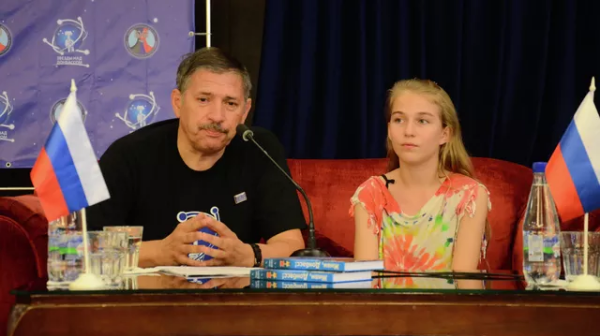
Archive photo of Faina Savenkova at age 11, with co-author Alexander Kontorovich. Photo: RIA Novosti
I spoke with Faina last Thursday on Skype, along with Mira Terada, the chairwoman of the Foundation to Battle Injustice, a Russian humanitarian organization which is dedicated to exposing human rights abuses worldwide and has been investigating the Mirotvorets kill list.
I have grown to know both of these women quite well over the summer. Faina and I message each other almost every day. It’s easy to forget, sometimes, that she is only 13. Though she has the seemingly boundless energy children are blessed with, it is tempered with a serious mind and wisdom beyond her years.
But then, Faina has not had a childhood in the normal sense, and neither have any of the kids in the Donbass, who are labeled “Russian separatists” by mainstream media in the West, which dismissed Kiev’s 8-year-bombardment of them without much thought.
Ukraine’s nationalist, neo-Nazi militias have shelled the Donbass with artillery and airstrikes since the Maidan coup first tore the country apart in 2014. And Volodymyr Zelensky, a Western puppet who campaigned on a promise of ending the fighting in the Donbass, did nothing to stop it. In fact, the attacks escalated to the point where Russia finally intervened after years of stonewalled attempts to broker peace diplomatically.
...
To Believe and to Hope
by Faina Savenkova (Originally published in The Saker)
Translated by Scott Humor
https://thesaker.is/to-believe-and-to-hope/
Whenever someone asks me to describe life under Ukrainian shelling, I feel lost. Not only because I am still a child, and not simply because I have nothing to say. I just don’t know what they want me to say. Dry and indifferent reports of casualties and destruction? Certainly not. There is news for that. Personal feelings and experiences? That’s more difficult. What is a life during the war? Ordinary, if you don’t remember your peaceful life.
Many people may be horrified to realize that in the twenty-first century in the geographical center of Europe, there are children who don’t remember passenger jets flying high in the sky, walking across an evening city with their parents, or some other cute nonsense that other children don’t even notice.
The no-fly zone and the curfews adjust our lives. That’s why when we read about the riots in some European cities after an introduction of coronavirus curfew, it is puzzling: what is wrong? It’s just a curfew, nothing terrible, why does it bother them that much? The reason for our calmness is actually very simple: everything is known in comparison, and we have nothing to compare.
We are a generation that doesn’t remember a peaceful life. We are a generation that lives by strict rules, the failure of which might result in death. We learned how to determine the direction of the projectiles by ear, so that we know when to worry and when to continue going about our business. We have learned not to ignore the lectures of the Ministry of Emergency Situations on the rules of conduct during attacks, in case of detection of suspicious objects or other recommendations in various situations. And still, no one can guarantee that you won’t accidentally get hit by a shard because you’re just unlucky. Strange? Scared? Everyday life, with a small degree of difference depending on the intensity of the shelling of the territory.
What is life under Ukrainian shelling? It is the evening of June 1st, Children’s Day, when hundreds of paper lanterns soared into the sky at the memorials to commemorate the fallen children of Donbass and light the way for the angels. After all, it is difficult to explain to kids why these angels were robbed of their short lives, deprived of the opportunity to grow up and see the world in our homeland. Now they can only watch from the sky and cry while the adults comfort them.
Almost all of my life and memories are connected to the war, which is why I have no regrets and sadness about the past. I live in the present and occasionally think about the future, in which there is a place for a naive and stupid dream that causes a smile. Quite real, warming and almost tangible, it allows you not to despair even in the most difficult times. I want passenger planes to fly in the skies of Donbass, not paper lanterns. Any dream can turn into a reality. It must be so, and I believe it will be so.
...
Two weeks short of her 14th birthday, Faina is already an accomplished writer, with four books published, including two novels and two collections of short stories and essays. She is not a poet, though she is often referred to as one, much to her annoyance.
Faina is not shy about voicing her opinions in her writing. She speaks her mind with courage and conviction both in her published work and in her private correspondence. But on camera, she is reserved like many young girls, and she holds herself back. In time, she will grow more accustomed to the spotlight, but I wanted to do my part to make her more comfortable during our interview, so I decided to attempt it speaking Russian.
Unfortunately, my Russian is rather halting these days, and to be honest, it has only ever been conversational at best. Thankfully, Mira Terada was there to interpret what I could not, which was most of it. But Mira says that my stuttering attempt at Russian comforted Faina, so in that case it is worth a little personal humiliation for me to bring you this interview where I invited Faina to read the above essay and one other that she has written, aloud.
I hope that you will watch it despite my many stumblings.
Oct 18, 2022
This youngster from Lugansk, which recently became a part of Russia, is no stranger to fame in her country. Her work is well known there and she has many followers and fans. She has met with Russia’s most famous actors and musicians as well as high-ranking members of the government including Minister of Foreign Affairs Sergei Lavrov and the Ministry’s spokesperson, Maria Zakharova.
Her novels are war-time fantasies about children like herself who have known bombardment, shelling and death most, or all, of their lives. I asked her if her writing helps her to cope with the hard reality of everyday life in a war-torn country. “Well, maybe to some extent yes,” she said. “But I think it’s more like… I’m trying to tell my emotions about this war in some way.”
|
“Standing Behind Your Shoulder” by Faina Savenkova and Alexander Kontorovich |
|
 |
Despite her celebrity in Russia, she is a relative unknown in the West. But she wants very much to be heard there. “Because many people don’t know what’s going on in Donbass,” she said. “They’re just not interested until it affects them. And if people were a little kinder, more sympathetic, it seems like… I don’t know, it would be better.”
She has made a plethora of attempts to be heard by Westerners. She spoke before the UN Security Council in a taped message, when she was just 12 years old, which is why she was originally added to the Mirotvorets blacklist. She has also written to celebrities such as Pink Floyd co-founder Roger Waters, who himself was added to the list for his statements about Ukraine, and to Julian Assange, who is imprisoned, facing charges of treason for exposing US war crimes. She wrote to Pope Francis and got a reply from the Vatican saying that the Pope would “pray with her.” She even wrote to Elon Musk, who was added to the Ukrainian blacklist despite his donation of millions of dollars worth of Starlink mapping technology to the Ukrainian war effort.
I myself have reached out to several Western journalists on Faina’s behalf, only to be stonewalled by most of them who simply do not even bother to respond. Perhaps they consider a 13-year-old girl uninteresting or beneath them. Perhaps they think it’s a joke. Perhaps they are afraid of talking to someone who is on “the list.” Or, more likely, they just don’t know, or care, who Faina is. It’s frustrating, depressing, and disappointing to say the least.
But some do respond. And for the sake of the few who are willing to speak to this “Russian separatist” and “info-terrorist,” as she is labeled by both Ukrainian Nazis and by brainwashed “Not-Sees” alike, I will continue to reach out on her behalf.
...
“Adult Silence”
By Faina Savenkova
Published by Stalker Zone with the title “Alive”: War in Donbass as Told by an 11-Year-Old Girl
https://www.stalkerzone.org/alive-war-in-donbass-as-told-by-an-11-year-old-girl/
Each person knows that any war always has a beginning and an end. But official dates often remain nothing more than cold indifferent dates in memory of those who are involved in the events.
When did the war in Donbass begin for each of us? No matter how many people I can ask around me, all of them will have a different answer. In 2014 there were many events that became for some this same dividing line.
I believe in humanity. I want to have faith. Just like my parents. We do not live in a fictional world, no. There is simply a difference between what we see and what we want. And my relatives wanted to believe that these events were a terrible accident. After all, people can’t be so cruel and merciless? They can. And we know this, all the same continuing to hope that people are capable of coming to their senses. Otherwise, why then to live? This is just a naive hope that does not justify the crime at all. I do not know. Probably, there was just a conviction that this could not happen in our time in our Motherland. All this seemed to be some foolish nightmare. It couldn’t happen like that. It SHOULDN’T happen that your own army destroys its own people. But this happens all the same.
I think the real understanding that war has started comes when you get used to death. At this same time, it begins also for individual people, and not just for the state.
For me such a date became June 2nd, 2014. I remember that it was a Monday, and my brother and I were ill and had to go for a doctor’s appointment. Everyday life is scheduled by the minute, although we do not notice it: the bus stop is this number of minutes away, the trip will take this amount of time. The timetable of bus trips, the timetable of work of the pediatrician, the approximate time spent in the waiting room… Angina is, of course, unpleasant, but not fatal, and if you put on a mask, you can go to the library to get books from the school list for summer reading. Plans that may change depending on the circumstances. Ours changed because my older brother was scared and I was the only one at the doctor’s that day, and I was too lazy to go to the library to get books that I couldn’t even find the time to read, except for looking at the pictures. If my brother had not been afraid or my mother had not paid attention to his feelings, we would have been near the very square where the airstrike took place during the attack. And I understand that I am, perhaps, alive only thanks to my brother.
I remember how I burst into tears because of the terrible noise that could be heard all over the city. I remember how there was no mobile communication, and we could not phone our grandmother working near the regional state administration building. And I also remember that my teacher described to us about the events of June 2nd. Behind the administration building there is a kindergarten, and on that day after the shelling the teachers stood at the gate and at a meeting said to sobbing mothers with shaking knees only one word: “alive”. They didn’t need anything else.
War — it is when on June 1st the world celebrates Children’s Day, and already on the June 2nd the most important, most proper word that parents can hear, simple and short, is “alive”. A week later, the first child was killed by artillery shelling. Polina Solodkaya. She was 6 years old. She could’ve become a doctor, a teacher, or an artist. Anyone. But she will forever remain the first on the list of child victims of this war. The most terrible thing about all of this is the word “list”. Names are still being added to it. It’s the inconvenient truth, but it is impossible to forget about it. And it won’t happen, even if there was desire.
In Lugansk there is a memorial devoted to the children who died because of shelling. I think there is one in Donetsk too. Standing at it, adults still do not find any words and are silent, bowing their heads. There is indeed nothing to say here. The world celebrates Children’s Day, but cannot protect us.
I once wrote that children of war are silent because they are not heard by adults. So far it’s indeed like that. But I believe that everything will change. One day we will see peace on our land too. We, the children who endured war, will grow up. And we will try to stop all this horror by doing what adults failed to do, so that Children’s Day is no longer just a date, but a real celebration.
....
They must be psychopaths. The people who added little Faina to the Mirotvorets kill list. Surely, they cannot be normal, flesh-and-blood human beings with beating hearts that harbor even a shred of empathy. Only someone completely hollow inside could call a little girl a “terrorist” simply because she writes, and talks, about what she is experiencing, growing up in a war zone where her neighbors and friends are there one day and dead the next.
Certainly, such individuals must not have children of their own. Mira Terada doesn’t think they do. “The people who are fighting, or the people who are leading the nationalists? I don’t believe that they could have children,” Mira said in the interview, “because if they did, I don’t know how they could allow this to happen.”
As Faina herself wrote, the value of a life in Donbass, to these nationalists, is worth one bullet. “That’s how they feel,” Mira said. “And for them there is no difference, if it’s an adult, if it’s a child, if it’s an animal. All that they see is an enemy.”
In the minds of the nationalists, the only thing that matters is a pure Ukrainian ethno-state. That is the end-goal, and any means to that end may be employed, regardless of how inhumane, how cruel, how horrifying or brutal it may be. The impure stain of the Moskals — the Ukrainian slur for Russians — must simply be removed from the land. Whether by car or train, or by bullets or bombs, it makes no difference. Bullets are cheap. Human lives, cheaper.
After all, the Ukrainian Nazi collaborator Stepan Bandera famously said:
“The OUN values the life of its members, values it highly; but — our idea in our understanding is so grand, that when we talk about its realization, not single individuals, nor hundreds, but millions of victims have to be sacrificed in order to realize it.”
Statues of this leader of the OUN — the Organization of Ukrainian Nationalists — have been erected all around the country, often on the very same pedestals where statues once stood dedicated to the Soviet heroes who defeated Hitler. But then, the OUN collaborated with Hitler and viewed him, not the Soviets, as an ally. So the Soviet statues were torn down, and statues of Nazis like Bandera were erected.
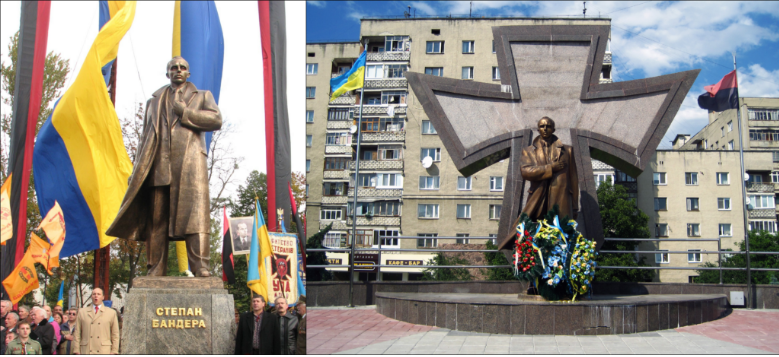
Left: Stepan Bandera monument, opening ceremony, Lvov, October 13, 2007. Right: Bandera monument, Ivano-Frankivsk. Photos: Forward collage
More than 370 children, including Faina, have been added to the Mirotvorets list, according to Mira’s Foundation. The youngest is only nine years old. In some cases, the children are targeted because of their parents’ words or activities.
“So, I think it’s another way to manipulate the consciousness of the adults,” Mira says, “you know, ‘your child is a target, you better stop. Now we have their information.’”
They may also see the budding talents of some children, like Faina, and want to silence them before they have a chance to become adults, when they may be taken more seriously by the world in general. Daria Dugina may have been assassinated both because she was an accomplished and well-known war correspondent in her own right, and because she was the daughter of famed Russian philosopher Alexander Dugin.

The word “Liquidated” appeared in red letters on Daria Dugina’s profile on Mirotvorets shortly after she was killed in a car bomb explosion in Moscow last August.
Mira, who was personally acquainted with Daria Dugina, believes that all of these factors were considered when her friend’s murder was planned: “Daria was her own person. Of course, she was the daughter of her father. But she was a brilliant journalist…And the enemy could probably see who Daria can become. She was one of the opinion leaders. She had a bunch of followers. People loved her. She was so rare. She was kind, and beautiful, and clever, and you would never hear that she would deny somebody with help. There is no such person like her. And so, knowing what may happen in five to ten years, who she can become, she was just, you know, executed.”
Mira herself was added to the Mirotvorets list when she began helping Faina. “And I arranged a press conference for her. Two hours after the press conference was over, they put me on the list,” Mira recalls. “And… what can I do?”
Why does Mirotvorets continue to exist? The database has been online since 2014, and it was adopted by the Ukrainian Center for Countering Disinformation under the Zelensky administration in 2021. It receives funding from the United States, approved by US Congress under HR7691, known as the “Additional Supplemental Appropriations Act of 2022.”And despite appeals to the UN by human rights organizations including Mira’s foundation and the Schiller Institute, Mirotvorets remains.
At first, complaints against the site were sporadic, individual. But now the thousands of people named on the list are starting to come together and organize with others who want to have the site shut down.
This growing opposition may be why Mirotvorets has begun adding high profile people such as Elon Musk and Henry Kissinger. Perhaps, Mira thinks, so that people will not take the list as seriously: “And they put it in your subconscious so you’ll be off guard,” she said. “Like ‘it’s a joke, we are doing nothing serious here.’”
But there is nothing funny about Mirotvorets. In the Ukrainian nationalists’ twisted idea of religion, the Russian-speaking families living in the Donbass, who have lived there for longer than Ukraine has been a country, are said to already be in “chistilische” — “purgatory.” Mira explains: “So they call it that way, you know? So, this is how they feel about all the people that they put on the list. That all of them are already dead. And all of them are already in hell, basically. How crazy this is!”
Crazy doesn’t even come close to describing this hitlist which, against all international laws and against the laws of all civilized nations, continues to exist. In fact, an investigation by Mira’s foundation has shown that the site is even hosted by Cloudflare, an American software company based in San Francisco, California. Cloudflare was recently embroiled in a scandal in the US, in which the company was found to be hosting a website called Kiwifarms, which was allegedly participating in the persecution and harassment of the LGBTQ community. The online harassment led to at least one suicide.
After a great deal of public pressure, Cloudflare’s CEO at last reluctantly agreed to stop providing its security services to Kiwifarms.
Perhaps some public pressure about Mirotvorets could lead to a similar result? The Schiller Institute and Mira’s organization have already published articles and videos about it and have sent petitions, signed by thousands of people, to the United Nations. If that doesn’t get Cloudflare’s attention, Mira says, a lawsuit may follow.
“And the problem is the fact that Cloudflare right now, they are not canceling this service, meaning that they are conspirators in this crime,” Mira said. “Because supporting this, providing this service means that you’re a conspirator to whoever violates the law right now.”
One is left wondering how any company or government or person could support such evil. How do the people who support it sleep at night? Or does all the money they make simply erase what little conscience such people have, if they indeed had a conscience to begin with?
Thinking about it can almost trigger an existential crisis. What is wrong with these people?
Fortunately, Faina’s youthful hope shines through the murky darkness of these adult worries. As the interview came to a close, she reminded us that we are not alone in this fight. We have each other.
“It seems to me that it’s better not by yourself, but all together,” she said.
Those of us with kind hearts surely must outnumber those who have given themselves over to evil. We must come together somehow, so that one day, we — the many — can make our stand against the evil, but very powerful, few.
“Any dream can turn into a reality. It must be so, and I believe it will be so.”
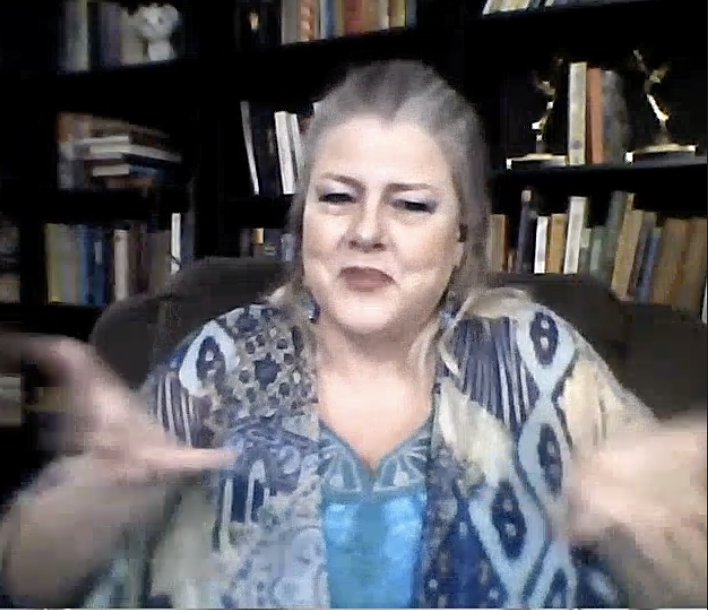 Deborah Armstrong currently writes about geopolitics with an emphasis on Russia. She previously worked in local TV news in the United States where she won two regional Emmy Awards. In the early 1990’s, Deborah lived in the Soviet Union during its final days and worked as a television consultant at Leningrad Television.
Deborah Armstrong currently writes about geopolitics with an emphasis on Russia. She previously worked in local TV news in the United States where she won two regional Emmy Awards. In the early 1990’s, Deborah lived in the Soviet Union during its final days and worked as a television consultant at Leningrad Television.Print this article
The views expressed herein are solely those of the author and may or may not reflect those of The Greanville Post. However, we do think they are important enough to be transmitted to a wider audience.

Unfortunately, most people take this site for granted.
DONATIONS HAVE ALMOST DRIED UP…
PLEASE send what you can today!
JUST USE THE BUTTON BELOW
| Did you sign up yet for our FREE bulletin? |
[premium_newsticker id=”211406″]

This work is licensed under a Creative Commons Attribution-NonCommercial 4.0 International License




